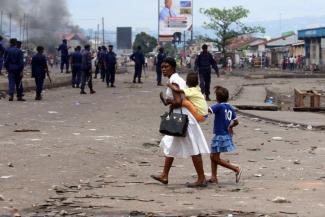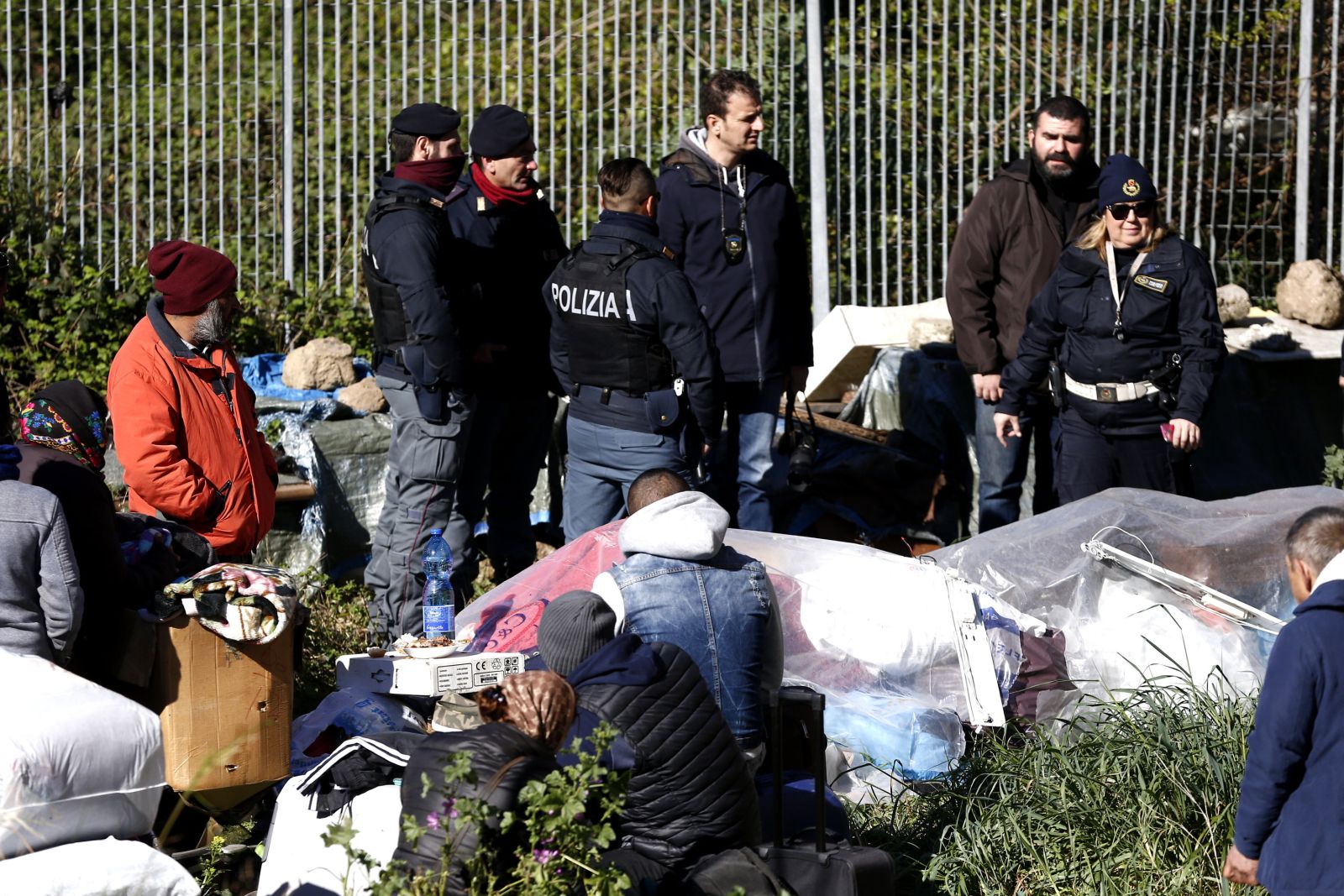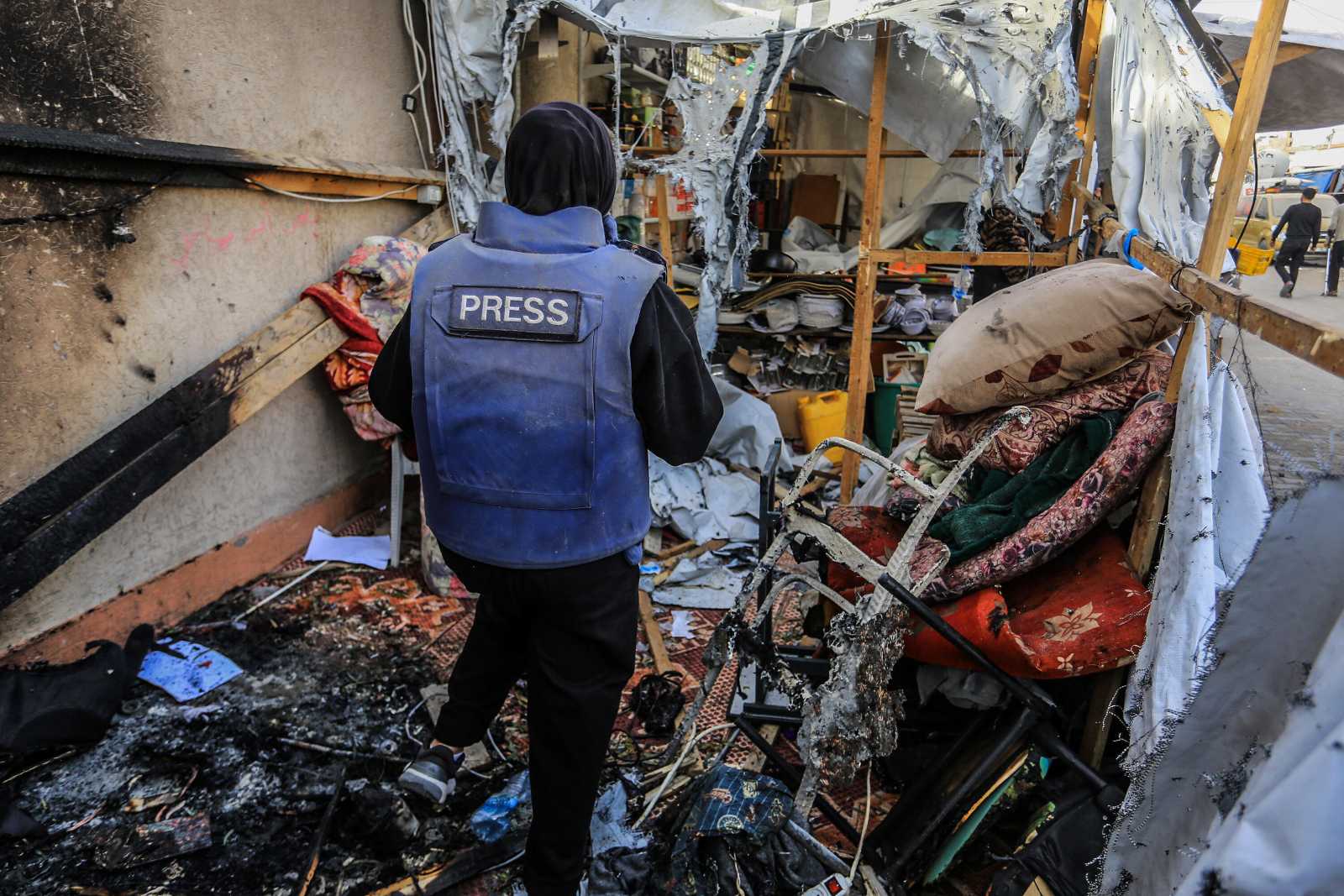Comment
More turmoil to come?

About 50 people were killed in violent clashes between protesters and security forces in Kinshasa on 19 and 20 September. Opposition leaders had called for mass demonstrations to force President Joseph Kabila to abide by the constitution and call for presidential elections in November. Violent outbursts led to the death of a few police officers and dozens of protesters. There was looting, and the headquarters of political parties (from both the majority and the opposition) were destroyed.
This year’s elections will constitute a key test for the country – if they take place. They should mark the end of Kabila’s second and last constitutional term. They are supposed to cement genuine change and democratic alternance at the head of the state. But opposition leaders accuse Kabila and the ruling party of delaying the elections in order to cling to power. Several recent events corroborate these allegations:
- In January 2015, the ruling party tried to pass a new electoral bill which would postpone the elections and allow Kabila to extend his mandate beyond the constitutional limit of two terms. However, after political unrest, which killed four people, the initiative was aborted.
- In May 2016, representatives from the ruling party asked the Constitutional Court to clarify article 70 of the constitution, which defines the number and length of presidential terms as well as the modalities for the installation of a new president. The Court ruled that the incumbent is expected to remain in office until a newly-elected president is installed. This implies that Kabila would stay in power in the case of a delay of the elections.
- In September 2016, the president called a “national dialogue” in an attempt to gather all political leaders. His goal was to reach a consensus to ensure the organisation of peaceful elections within a realistic time frame. The government and the electoral commission said that elections could not take place this year because of a lack of resources, and commentators hoped that the national dialogue would agree on a way to manage the transition after Kabila’s term expires. One option would be to let an interim government manage new elections.
The national dialogue, which started early last month, is unlikely to lead to a definite solution, not least because the majority of opposition leaders boycotted it. They see it as yet another attempt to delay the elections. They insist that Kabila, who has been in power since January 2001, should step down at the official end of his term, on 19 December, and let someone else become president. 19 September, the first day of the bloody protests, was the official date on which the electoral process was supposed to begin.
Several commentators and foreign chancelleries have warned of continued insecurity in the coming months, some even going as far as talking of a looming civil war. Indeed, recent events portend a political deadlock and more turmoil by the end of the year. On the one hand, it looks very unlikely that the elections will take place in November, as originally planned. On the other hand, opposition leaders have called for more demonstrations and set an ultimatum for Kabila to step down by 19 December. Otherwise they would use force. In addition, ordinary people feel frustrated and left out. They live in misery, and the gap between the rich and the poor continues to widen, while political leaders and their relatives seem to be privileged.
All these factors are fuelling tensions and make the future look grim in the DRC. Perhaps the international community could contribute to peace and stability by giving a special mandate to the UN mission in the country. Thus, MONUSCO could help to ensure the safety of the people in the coming months and to maintain pressure not only on the ruling party but also on opposition leaders. Both must abide by the constitution and other fundamental laws and act responsibly to advance democracy and avoid chaos and more bloodshed in the DRC.
Jonathan Bashi is a PhD graduate from the SOAS, University of London’s School of Law. He now works as a consultant and a law professor in the DRC.











